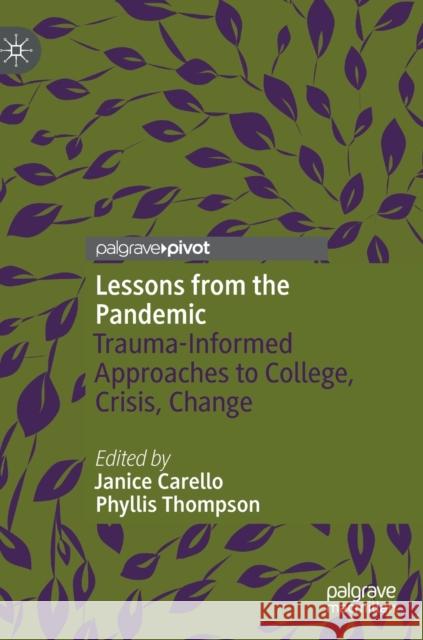Lessons from the Pandemic: Trauma-Informed Approaches to College, Crisis, Change » książka
topmenu
Lessons from the Pandemic: Trauma-Informed Approaches to College, Crisis, Change
ISBN-13: 9783030838485 / Angielski / Twarda / 2021 / 184 str.
Kategorie:
Kategorie BISAC:
Wydawca:
Palgrave MacMillan
Język:
Angielski
ISBN-13:
9783030838485
Rok wydania:
2021
Wydanie:
2021
Ilość stron:
184
Waga:
0.39 kg
Wymiary:
21.01 x 14.81 x 1.42
Oprawa:
Twarda
Wolumenów:
01
Dodatkowe informacje:
Wydanie ilustrowane











